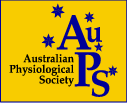
Australian Physiological Society
The professional association for Australian Physiologists

The professional association for Australian Physiologists
As a society it is important for AuPS to be actively involved in the current debates concerning the professional development of the tertiary teaching of physiology.
There are numerous ways in which to define a core concept and one accepted approach is to refer to a core concept as a "big idea" that is central to a discipline (Michael et al., 2017). A focus on teaching core concepts is beneficial, as they provide a framework for teaching and learning, are applicable to many areas of a discipline, and can consolidate the content that students need to learn to have proficient knowledge in a discipline (Michael et al., 2017).
Preliminary work indicated that an existing set of 15 core concepts of physiology developed by a US-based team were not well represented across the Australian higher education curricula. In response, a national task force was established, and nationwide consensus was reached on seven core concepts of physiology for the Australian higher education context: cell-cell communication; cell membrane; movement of substances; homeostasis; structure and function; integration and physiological adaptation. An icon was created to visually represent each core concept. In subsequent work, each of the core concepts was unpacked into themes and subthemes and validated by the task force. This work has resulted in 9 publications in Advances in Physiology Education in 2023 and a booklet which you will find on the AuPS website.
We call on physiology educators across Australia to embed the core concepts and associated icons across your curriculum and in your teaching and learning activities. Please get in touch if you would like to collaborate, or share how your work in this space is progressing by emailing Kathy.tangalakis@vu.edu.au or alan.hayes@vu.edu.au.
Applications are now open for the Physiology Education prize and AuPS Education Grant Scheme
The society supports excellence in Physiology Education with its Michael Roberts Excellence in Teaching Award. The award started in 2010 in memory of Dr Michael Roberts.
| Year | Name | Department (at time of award) | Title of Keynote Lecture | Issue, Page |
|---|---|---|---|---|
| 2010 | Phil Poronnik | Health Innovations Research Institute, School of Medical Sciences,RMIT University,Vic Australia. | Rigour or rigor mortis: a challenge for physiology | 41, 11P |
| 2011 | Yvonne Hodgson | Biomedical Sciences, Monash University, Victoria. | Developing assessment as a collaborative endeavour. | 43, 8P |
| 2012 | David Saint | Department of Physiology, The Medical School, University of Adelaide, South Australia. | Learning and teaching - the rear view mirror and the road ahead | 44, 2P |
| 2013 | Kay Colthorpe | School of Biomedical Sciences, The University of Queensland, St Lucia, QLD. | From active learning to self-regulated learning | 45, 63P |
| 2014 | Deanne Hryciw | Department of Physiology, University of Melbourne, Parkville, VIC. | Communicating science: how do we teach undergraduates to become scientists? | 46, 44P |
| 2015 | Julia Choate | Department of Physiology, Monash University, Clayton, VIC. | Enhancing students’ university experiences by engaging them with their course and equipping them for life-long learning | 47, 184P |
| 2016 | Kathy Tangalakis | Victoria University, Melbourne, VIC. |
Enhancing the commencing student learning experience with Innovative learning and teaching approaches and peer support systems | 48, 72P |
| 2017 | Glenn Wadley | Deakin University, Melbourne, VIC. |
Adventures in flipping the classroom | 49, 111P |
| 2018 | Prize not awarded | |||
| 2019 | Andrew Moorhouse | UNSW, Sydney, NSW. |
How can we effectively clear the hurdles to reach the Physiology finals? | abstract book |
| 2020 | Charles Sevigny | University of Melbourne, Melbourne, Vic. |
Empowering student ownership through flexibility, authenticity, and co-creation | abstract 40I, V52 |
| 2021 | Christian Moro | Bond University Qld. |
The school of hard knocks: what did not work when introducing technology-enhanced learning to physiology lectures, labs, and workshops | abstract 41I, V52 |
| 2022 | Assoc. Prof. Elizabeth Beckett | University of Adelaide SA |
*presentation scheduled for the 2025 AuPS annual meeting | |
| 2023 | Associate Prof. Pushpa Sinnayah | Victoria University Vic |
Navigating the future of higher education: addressing challenges through innovation in technology | Presentation at Biomolecular Horizons 2024 |
| 2024 | Dr Betty Exintaris | Monash University Vic |
*presentation scheduled for the 2025 AuPS annual meeting |
| Year | Name | Department (at time of award) | Title (at time of award) |
|---|---|---|---|
| 2020 | Severine Lamon | Deakin University, Melbourne, Vic. |
Project: New to an academic position - bridging the gap. Resulting publication: Lamon R, Knowles O, Currey J. Transitional experiences of Australian health science researchers: where is academic teaching preparedness? Front Educ (2024) 9 |
| 2021 | Iris Lim | Bond University Qld. |
Project: Use of educational escape rooms in physiology education. Resulting publication: Lim I. . A physical neuroscience-themed escape room: Design, implementation, and students' perceptions. Educ Inf Technol (2024) 29, 8725-8740 |
| 2022 | Christian Moro | Bond University, Qld | Project: Which concepts are important in planetary health education for physiology students? Resulting publication: Moro C, Phelps C, McLean M. Don't forget the veggies! Identifying and addressing a lack of vegetable education in physiology. Adv Physiol Educ (2023) 47:4, 726-731 |
| 2023 | Angelina Fong | University of Melbourne | Project: Enhancing student preparedness for labs: the power of virtual environments in reducing cognitive load. |
| 2024 | Betty Exintaris | Monash University |